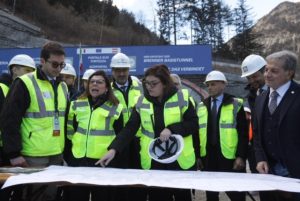 The Members of the Presiding Board of UNIFE, the European Rail Supply Industry Association raised deep concerns regarding a series of recent alarming developments which have been met with disbelief within the rail industry and created the perception that rail may not have its rightful place on the EU political agenda.
The Members of the Presiding Board of UNIFE, the European Rail Supply Industry Association raised deep concerns regarding a series of recent alarming developments which have been met with disbelief within the rail industry and created the perception that rail may not have its rightful place on the EU political agenda.
UNIFE’s Presiding Board wishes to protest recent European Union decisions which are incongruent with its urgent EU Green Deal goals and a swift COVID-19 economic recovery.
Despite earlier commitments to decarbonising transport, which will rely on rail at its backbone, developments in the past weeks demonstrate a troubling walking back from those ambitious objectives.
Organisation’s deep concerns started this spring with the exclusion of rail from the “Green Deal Call” under Horizon 2020, even though the rail industry has always been committed to demonstrate its extraordinary innovation capacities, notably to make rail ever cleaner and more efficient, with strong and lasting societal and economic impacts.
Another issue highlighted by the UNIFE is related to the European Commission proposal to significantly reduce the EU subsidy to be granted to the European Union Agency for Railways (ERA) for the year 2021 while recognising at the same time that the role of the Agency would be “substantially extended” “with the entry into force of the Fourth Railway Package technical pillar”.
In addition, the European rail supply industry learnt to “its great surprise”, that the European Commission selected 50 organisations to be part of the new EU Platform on Sustainable Finance, but not a single one from the rail sector despite at least 6 applications submitted.
Less than 10 weeks before the launch of the European Year of Rail, UNIFE calls on the European Institutions to bring back consistency between words and actions for a series of key initiatives where crucial decisions are to be taken soon.
The new European Strategy on Sustainable and Smart Mobility. UNIFE is wondering how the EU will fulfill its Green Deal objectives if rail continues to carry only 11.3% of inland freight and 8.4% of passengers in Europe, keeping in mind that rail is the only transport mode which has reduced its emissions, while increased passenger and freight volumes and improved its energy efficiency. “Therefore, we firmly stand behind the public commitment of Commission President Ursula von der Leyen in front of the European Parliament to “shift a substantial part of the 75% of inland freight carried today by road onto rail and inland waterways”. But this modal shift must now become a reality and must be clearly enshrined in the upcoming Commission’s Strategy.
On the EU and national investment programmes for rail issue, the organisation is counting EC to push all Member States to dedicate massive investment for rail in their national Recovery and Resilience Plans.
A “pro-rail policy vision shall also be concretely translated into ambitious EU funding programmes earmarked for rail infrastructure, ERTMS deployment and acquisition of modern, energy-efficient and zero-emission rolling stock,” the UNIFE Presiding Board underlines.
Transforming Europe’s Rail System European Partnership is another initiative that needs a strong EC commitment. The EC is asked to propose an ambitious Shift2Rail-2 Programme with an EU contribution of EUR 1.5 billion under Horizon Europe as the European railway industry has been constantly innovating to improve the quality of its products and decrease the overall life-cycle cost of the railway transport system. “We need more than ever such financial support of the European Commission to help us stay at the forefront of the green and digital transition,” UNIFE says.
On the global level-playing field matter, the organisation highlights that besides the much-needed adoption of the International Procurement Instrument (IPI) by the Council and the European Parliament, the rail supply industry is counting on the Commission to propose an instrument on foreign subsidies that effectively tackles the issue of access of foreign State-owned companies to European procurement markets.
Ensuring international market access and global level-playing field is more essential than ever for an export-oriented industry that faces increasing protectionism and a fierce and unfair competition from Asian State-owned manufacturers all over the world and increasingly in the EU.
Rail is the only area where structural investment can contribute by the same token to a series of essential targets, be it a stronger internal market through cross-border connectivity, job creation, territorial and social cohesion and of course a smart, digital and sustainable mobility system that reconciles performance and reduction of CO2 emissions.
Share on:



